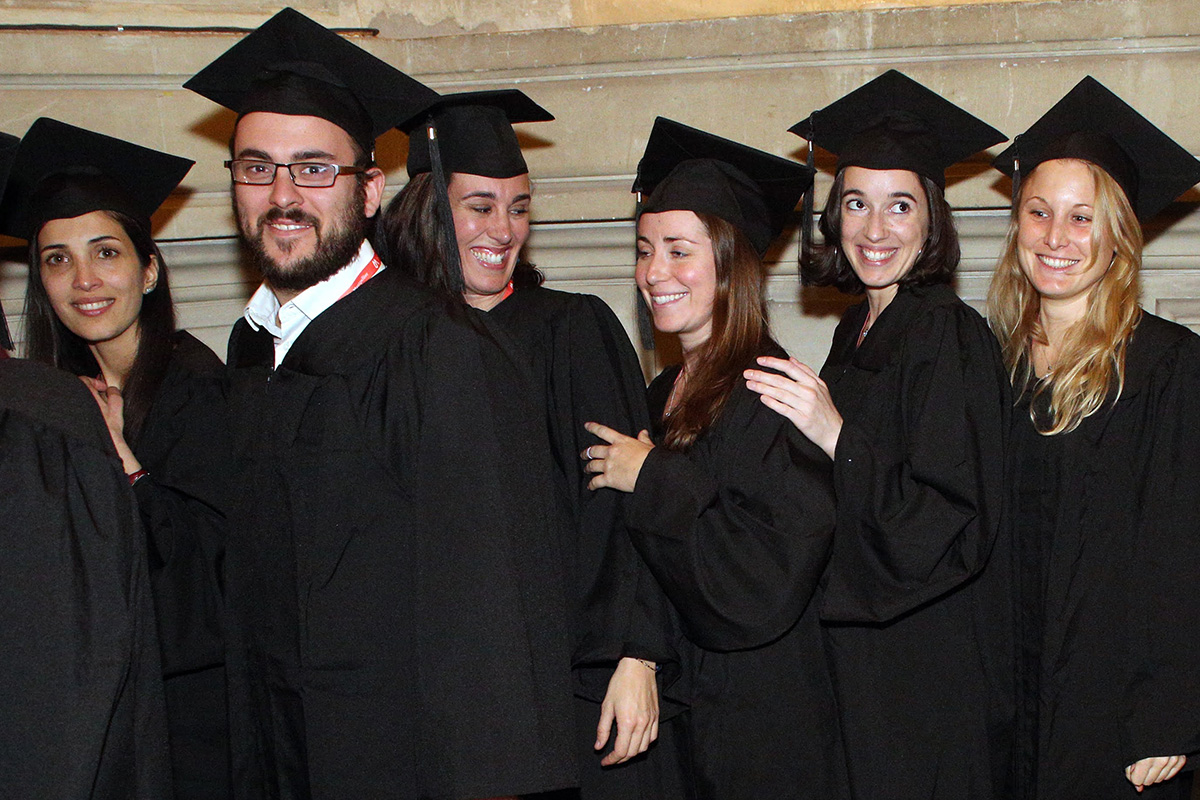Gilles Subra: "The doctorate is a vehicle for high-level skills common to all doctors".
Professor in the Faculty of Pharmacy and researcher at the Max Mousseron Institute of Biomolecules (IBMM), Gilles Subra has been appointed Director of the Doctoral College at the University of Montpellier, succeeding Marc Bouvy. An opportunity to talk to him about the missions of this little-known structure.

" The hardest part of writing a thesis is finishing it " wrote Heloïse Lhérété in her now cult article La solitude du thésard de fond. Fatigue, stress, feelings of isolation for some, lack of exchange between disciplines, uncertainties about the future... These are just some of the difficulties encountered by doctoral students, which Gilles Subra, professor at the Faculty of Pharmacy and passionate about research, knows all too well. " I've supervised a lot of PhD students, and I know just how difficult the transition can be. The doctoral college, through the training courses and the events it organizes, aims to prepare them for this transition.
An interface with business and society
Created in 2017 with the establishment of the Muse I-site, the doctoral college aims to pool training and professional integration initiatives, and to increase the interdisciplinarity, attractiveness and visibility of doctoral studies. It is a complementary tool to the seven doctoral schools it brings together, and helps to meet the need to " structure doctoral training in a cross-disciplinary and multi-disciplinary way, moving away from silo-based thinking", says Gilles Subra. The stakes are high: we want to show that the doctoral diploma, beyond the discipline to which it is attached, carries with it very high-level skills common to all doctors".
These are skills that can be put to good use on the job market, as the professional integration of young PhDs remains one of the main missions of the doctoral college. Through its various actions, it aims to "act as a genuine interface with the business world and civil society in France and abroad. We monitor and measure the integration of our doctoral students, so that we can better adapt the training courses we offer," emphasizes the new director.
Cultivating a sense of belonging
The doctoral college is a unifying element that integrates doctoral students into the local scientific community. Bringing together the doctoral schools of UM, Institut Agro - Montpellier Supagro, IMT Mines-Alès, AgroParisTech andENSCM, " the doctoral college helps cultivate a sense of belonging to a diverse and broad scientific community that transcends the perimeter of doctoral schools and establishments, and is an extraordinary breeding ground for interdisciplinarity ", concludes Gilles Subra.
The professor of pharmacy will be able to devote all his time and energy to these tasks during his five-year term of office. " Marc Bouvy, my predecessor, really did a remarkable job. We want to perpetuate all the events and training courses that have been put in place, with the constant aim of adapting them to the new needs of doctoral students and, of course, adding a little something new." Among these new features, Gilles Subra refers in particular to actions dedicated to the transmission of knowledge and popularization, with why not " a module on scientific mediation or on pedagogical transformation for those destined for teaching, for example."
The doctoral college's major events
The program for the coming year includes four key events to help you make the most of your thesis years and anticipate your professional integration.
- Ma thèse en 180 secondes and 3MT prize-giving ceremony: Initially scheduled for March 25, the MT 180 and 3MT prize-giving ceremony will now take place at ENSCM on October 28. Although the capacity will be limited to 50 people, a retransmission system will enable everyone to follow this ceremony dedicated to the competition winners.
- Entrepreneurship and professional integration week for young PhDs from November 30 to December 3: due to the health crisis, the Doctoriales have been postponed until spring. In their place, a week of conference-debates and interactive presentations on entrepreneurship and professional integration is organized with the participation of BIC, SATT AxLR and firms specializing in intellectual property or the recruitment of young doctors.
- Start-of-term meeting for doctoral students on January 22: while the start-of-term meeting will be organized within each doctoral school during the afternoon, the morning will be common to all doctoral students of the doctoral college and will take place on the Triolet site in the Dumontet amphitheatre. The program will include testimonials and mini-conferences on themes such as open science, scientific integrity and the role of research in meeting the challenges of sustainable development.
- Graduation day in March (date and venue to be confirmed).